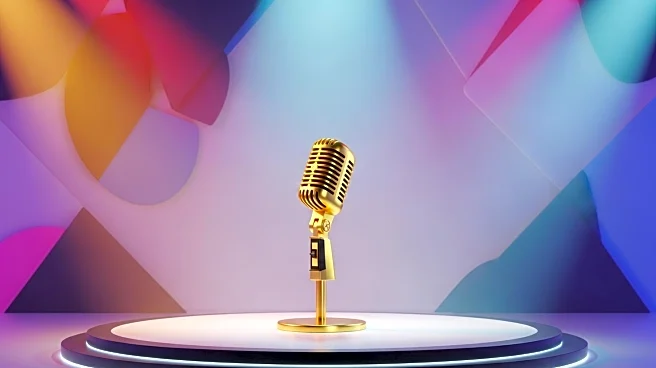What's Happening?
Bad Bunny, the Puerto Rican reggaeton and hip-hop superstar, has been announced as the headliner for the Super Bowl 2026 halftime show at Levi’s Stadium in San Francisco. The announcement was made during the Packers-Cowboys 'Sunday Night Football' game. Known as the 'King of Latin Trap,' Bad Bunny is the most-streamed artist globally and a three-time Grammy winner. This will not be his first Super Bowl appearance, as he previously performed as a special guest during the 2020 halftime show with Shakira and Jennifer Lopez. Recently, Bad Bunny concluded a successful 31-night residency in Puerto Rico, which included the most-watched Amazon Music livestream ever.
Why It's Important?
Bad Bunny's selection as the Super Bowl halftime performer is significant for several reasons. It highlights the growing influence of Latin music in mainstream American culture and entertainment. As a global music icon, Bad Bunny's performance is expected to draw a massive audience, potentially surpassing previous viewership records. His presence on such a prominent stage underscores the increasing recognition and celebration of diverse cultural backgrounds in the U.S. entertainment industry. This move by the NFL also reflects a broader trend of embracing multiculturalism and diversity, which could resonate with a wide range of audiences and stakeholders.
What's Next?
The Super Bowl is scheduled for February 8, 2026, and anticipation is building for Bad Bunny's performance. Fans and industry observers will be watching to see how he incorporates his cultural heritage into the show. The NFL's decision to feature Bad Bunny may prompt discussions about diversity and representation in major American events. Additionally, there may be reactions from various cultural and political groups, given Bad Bunny's outspoken views on issues like Puerto Rican statehood and immigration policies.
Beyond the Headlines
Bad Bunny's performance could have deeper implications beyond entertainment. It may serve as a platform for raising awareness about Puerto Rican culture and the political status of Puerto Rico. His choice to perform primarily in Spanish could challenge traditional norms of American entertainment, potentially sparking conversations about language and identity in the U.S. The event might also influence future decisions by the NFL and other organizations regarding the inclusion of diverse voices in high-profile events.








